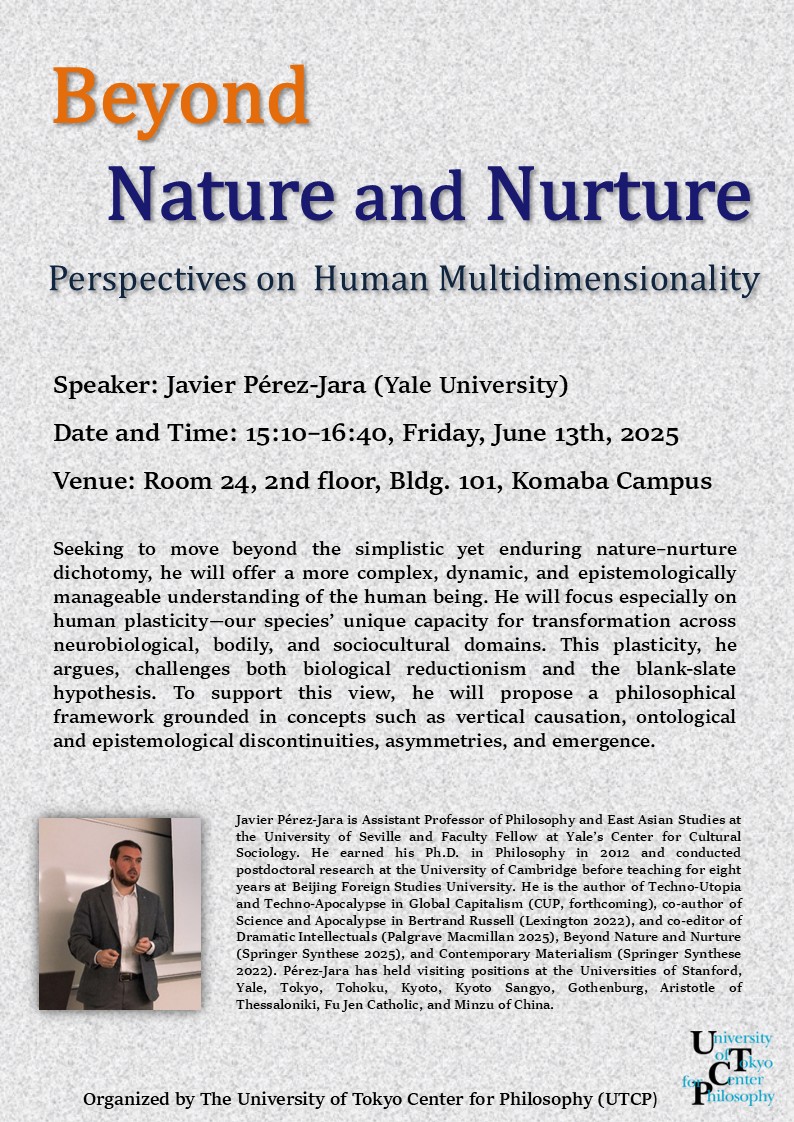
|
Title: | "Beyond Nature and Nurture: Perspectives on Human Multidimensionality." |
||
|---|---|---|---|---|
| Date: | 15:10-16:40, Friday, June 13th, 2025 |
Place: | Room 24(in front of the stairs), 2nd floor, Bldg. 101, Komaba Campus, The University of Tokyo |
|
"Beyond Nature and Nurture: Perspectives on Human Multidimensionality."
Speaker: Javier Pérez-Jara
Venue: Room 24(in front of the stairs), 2nd floor, Bldg. 101, Komaba Campus, The University of Tokyo
Date and time: 15:10-16:40, Friday, June 13th, 2025
Abstract :
This talk pursues two interrelated aims. First, I will briefly present the key themes, aims, and chapters of a forthcoming volume I have coedited, Beyond Nature and Nurture: Perspectives on Human Multidimensionality (Springer Synthese Library). The book gathers several of the world’s leading scholars in the nature vs. nurture debate, offering a timely reconsideration of the dynamic interactions that shape human multidimensionality.
Second, I will present my own chapter in the volume, which builds on a central tenet of cultural sociology: the relative independence of culture. A central focus of my analysis is human plasticity—our species’ distinctive capacity for transformation across neurobiological, bodily, and sociocultural domains. This plasticity challenges both biological reductionism and the blank-slate hypothesis. While biological processes undeniably shape and constrain social life, I argue that cultural structures and social interactions can in turn reshape biological traits once considered immutable. To support this claim, I propose a philosophical framework grounded in concepts such as vertical causation, ontological and epistemological discontinuities, asymmetries, and emergence. Drawing on recent scientific and philosophical advances, I aim to overcome the simplistic yet persistent opposition between nature and nurture, offering a far more complex and dynamic—yet richer and epistemologically manageable—picture of the human being.
Organization: The University of Tokyo Center for Philosophy (UTCP)







